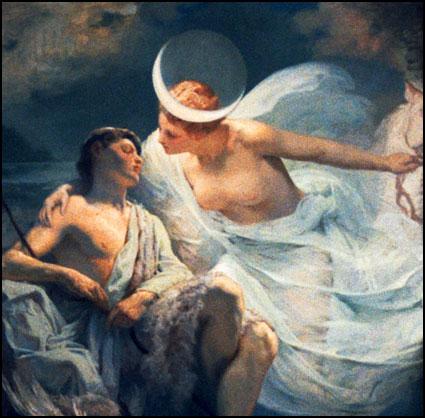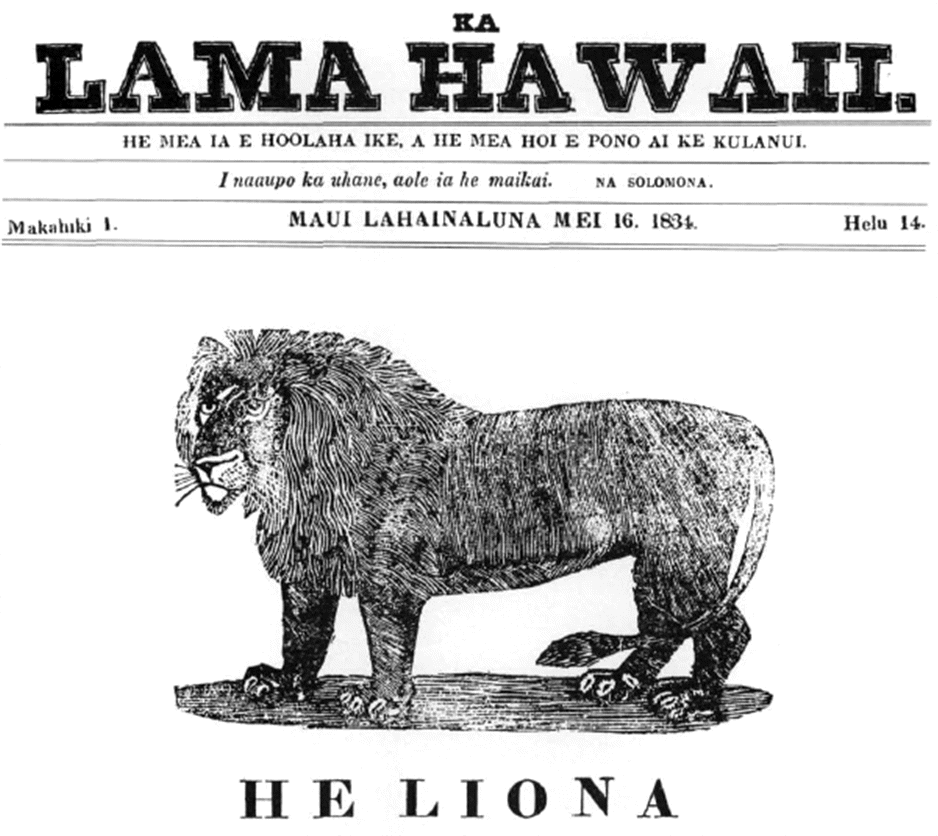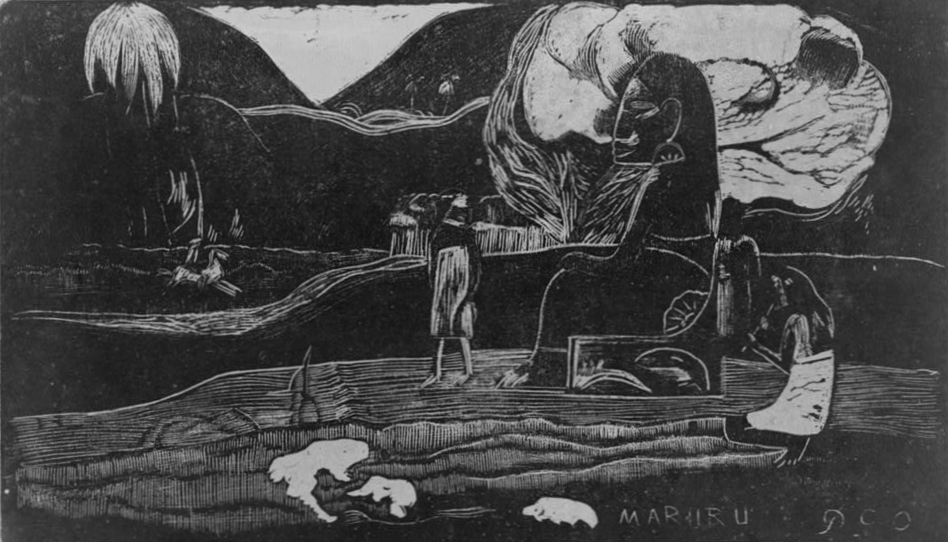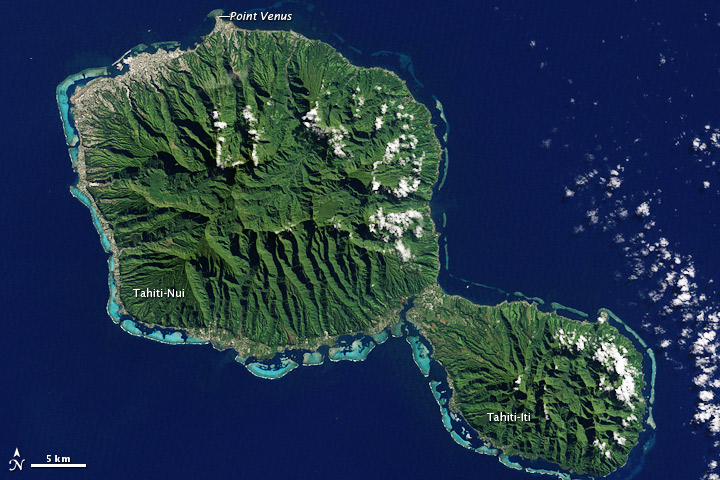|
Mahina (mythology)
In Hawaiian mythology, Mahina is a lunar deity, mother of Hemā. ''Mahina'' is also the word for the "Moon" in Hawaiian language. It is likely that she is the same as the goddess Hina or Lona.Martha Warren Beckwith, pp. 214-25 See also *Mahina, French Polynesia *Hina Hina may refer to: People and deities * Hina (given name), including a list of people and fictional characters with the name * Hina (chiefess), a name given to several noble ladies who lived in ancient Hawaii * Hina (goddess), the name assigned to ... * Aikanaka, possibly Mahina's husband * List of lunar deities References Lunar goddesses Hawaiian goddesses {{Oceania-myth-stub ... [...More Info...] [...Related Items...] OR: [Wikipedia] [Google] [Baidu] |
Hawaiian Mythology
Hawaiian religion refers to the indigenous religious beliefs and practices of native Hawaiians, also known as the kapu system. Hawaiian religion is based largely on the tapu religion common in Polynesia and likely originated among the Tahitians and other Pacific islanders who landed in Hawaii between 500 and 1300 AD. It is polytheistic and animistic, with a belief in many deities and spirits, including the belief that spirits are found in non-human beings and objects such as other animals, the waves, and the sky. It was only during the reign of Kamehameha I that a ruler from Hawaii island attempted to impose a singular "Hawaiian" religion on all the Hawaiian islands that was not Christianity. Today, Hawaiian religious practices are protected by the American Indian Religious Freedom Act. Traditional Hawaiian religion is unrelated to the modern New Age practice known as " Huna".Rothstein, Mikael, in Lewis, James R. and Daren Kemp. ''Handbook of New Age''. Brill Academic Publisher ... [...More Info...] [...Related Items...] OR: [Wikipedia] [Google] [Baidu] |
Lunar Deity
A lunar deity or moon deity is a deity who represents the Moon, or an aspect of it. These deities can have a variety of functions and traditions depending upon the culture, but they are often related. Lunar deities and Moon worship can be found throughout most of recorded history in various forms. Moon in religion and mythology Many cultures have implicitly linked the 29.5-day lunar cycle to women's menstrual cycles, as evident in the shared linguistic roots of "menstruation" and "moon" words in multiple language families. This identification was not universal, as demonstrated by the fact that not all moon deities are female. Still, many well-known mythologies feature moon goddesses, including the Greek goddess Selene, the Roman goddess Luna, and the Chinese goddess Chang'e. Several goddesses including Artemis, Hecate, and Isis did not originally have lunar aspects, and only acquired them late in antiquity due to syncretism with the de facto Greco-Roman lunar deity Selene/Luna. ... [...More Info...] [...Related Items...] OR: [Wikipedia] [Google] [Baidu] |
Hemā (mythology)
Hemā is a figure in both Hawaiian and Maori mythology. Māori In Māori mythology, Hema is a son of Whaitiri and Kaitangata and the father of Tāwhaki and Karihi. In North Island stories, he was killed by the Ponaturi, evil creatures who live by day in the water. Tāwhaki, Karihi and their mother trick the Ponaturi into entering a house, and then locked them in, claiming there was still time before the dawn. They then opened the door after sunrise, and the Ponaturi were killed by the exposure to sunlight (Tregear 1891:61, 496). The only survivor (in one account) was Tonga-Hiti and in another account kanae, the grey mullet. Hawaii In Hawaiian mythology, Hemā and his brother Puna are sons of the man named Aikanaka by his consort, Hinahanaiakamalama — often simply called Hina. His son was Kaha'i. Hina is disgusted by her children's dirtiness, and she goes to the moon. In some accounts, Hemā sails to a far-off country, where he is killed by the people which habitually kill all ... [...More Info...] [...Related Items...] OR: [Wikipedia] [Google] [Baidu] |
Moon
The Moon is Earth's only natural satellite. It is the fifth largest satellite in the Solar System and the largest and most massive relative to its parent planet, with a diameter about one-quarter that of Earth (comparable to the width of Australia). The Moon is a planetary-mass object with a differentiated rocky body, making it a satellite planet under the geophysical definitions of the term and larger than all known dwarf planets of the Solar System. It lacks any significant atmosphere, hydrosphere, or magnetic field. Its surface gravity is about one-sixth of Earth's at , with Jupiter's moon Io being the only satellite in the Solar System known to have a higher surface gravity and density. The Moon orbits Earth at an average distance of , or about 30 times Earth's diameter. Its gravitational influence is the main driver of Earth's tides and very slowly lengthens Earth's day. The Moon's orbit around Earth has a sidereal period of 27.3 days. During each synodic period ... [...More Info...] [...Related Items...] OR: [Wikipedia] [Google] [Baidu] |
Hawaiian Language
Hawaiian (', ) is a Polynesian language of the Austronesian language family that takes its name from Hawaii, the largest island in the tropical North Pacific archipelago where it developed. Hawaiian, along with English, is an official language of the US state of Hawaii. King Kamehameha III established the first Hawaiian-language constitution in 1839 and 1840. For various reasons, including territorial legislation establishing English as the official language in schools, the number of native speakers of Hawaiian gradually decreased during the period from the 1830s to the 1950s. Hawaiian was essentially displaced by English on six of seven inhabited islands. In 2001, native speakers of Hawaiian amounted to less than 0.1% of the statewide population. Linguists were unsure if Hawaiian and other endangered languages would survive. Nevertheless, from around 1949 to the present day, there has been a gradual increase in attention to and promotion of the language. Public Hawaiian-langua ... [...More Info...] [...Related Items...] OR: [Wikipedia] [Google] [Baidu] |
Hina (goddess)
Hina is the name assigned to a number of Polynesian deities. The name Hina usually relates to a powerful female force (typically a goddess or queen) who has dominion over a specific entity. Some variations of the name Hina include Sina, Hanaiakamalama, and Ina. Even within a single culture, Hina could refer to multiple goddesses and the distinction between the different identities are not always clear. In Hawaiian mythology, the name is usually paired with words which explain or identify the goddess and her power such as Hina-puku-iʻa (Hina-gathering-seafood) the goddess of fishermen, and Hina-ʻopu-hala-koʻa who gave birth to all reef life. Hina continues to be a figure worshiped in many of the Polynesian religionsStokes, J. F. G., Heiau of Molokai. 1909 in MS. ''The Ancient Worship of the Hawaiian Islanders'', edited by W. T. Bringham. Archives, B.P. Bishop Museum, Honolulu. and her stories serve as traditions that unite Polynesia, specifically the Hawaiian Islands. New Zea ... [...More Info...] [...Related Items...] OR: [Wikipedia] [Google] [Baidu] |
Martha Warren Beckwith
Martha Warren Beckwith (January 19, 1871 – January 28, 1959) was an American folklorist and ethnographer, appointed to the first chair in Folklore established in the U.S. Early life and education Beckwith was born in Wellesley Heights, Massachusetts to George Ely and Harriet Winslow (née Goodale) Beckwith, both schoolteachers, before the family moved to Maui, Hawaii, where they had relatives descended from early missionaries. There, Beckwith made friends with many locals including members of the wealthy Alexander family who later sponsored her folklore work, and she developed an early interest in Hawaiian folk dancing. Beckwith graduated from Mount Holyoke College in 1893 and taught English at Elmira College, Mount Holyoke, Vassar College, and Smith College. Her formal education in anthropology did not begin till the 1900s. In 1906, she obtained a Master of Arts degree in anthropology after studying under Franz Boas at Columbia University, and she received her Doctor of P ... [...More Info...] [...Related Items...] OR: [Wikipedia] [Google] [Baidu] |
Mahina, French Polynesia
Māhina is a commune in the north of Tahiti in French Polynesia, an overseas territory of France in the Pacific Ocean. Māhina is located on the island of Tahiti, in the administrative subdivision of the Windward Islands, themselves part of the Society Islands. Māhina is the 5th most populous commune in French Polynesia with a population of 14,764 (2017 census), in an area of 52 km2. statoids.com Mount Orohena is a nearby mountain. History The area of Māhina was first settled by early Polynesians. Large, double-hulled canoes made out of tree trunks were used to sail across the Pacific, some vessels making it to |
Aikanaka (mythology)
In Hawaiian mythology, ʻAikanaka (or ʻAi Kanaka, ʻAikane) is a mortal chief. His name means "man eater". His father was named Hulumanailani, whilst his mother was named Hinamaikalani. ʻAikanaka married Hinahanaiakamalama (according to the Ulu genealogy Genealogy () is the study of families, family history, and the tracing of their lineages. Genealogists use oral interviews, historical records, genetic analysis, and other records to obtain information about a family and to demonstrate kins ...). She bore him sons Hemā and Puna.ʻAikanaka is also depicted to have married the moon goddess lona,who carried ʻAikanaka on her wings. According to the Ulu genealogy, ʻAikanaka was born about 746 AD. Notes {{DEFAULTSORT:Aikanaka Ancient Hawaiian royalty Legendary Hawaiian people 740s births Year of birth uncertain Year of death unknown ... [...More Info...] [...Related Items...] OR: [Wikipedia] [Google] [Baidu] |
List Of Lunar Deities
A lunar deity is a deity who represents the Moon, or an aspect of it. Lunar deities and Moon worship can be found throughout most of recorded history in various forms. The following is a list of lunar deities: African American Aztec mythology * Deity Metztli * Goddess Coyolxauhqui * God Tecciztecatl Cahuilla mythology * Goddess Menily Hopi mythology * God Muuya Incan mythology * Goddess Mama Killa * Goddess Ka-Ata-Killa * God Coniraya Inuit mythology * God Alignak * God Igaluk * God Tarqiup Inua Lakota mythology * Goddess Hanwi Maya mythology * Goddess Awilix; Xbalanque was her mortal (male) incarnation * Maya moon goddess Muisca mythology * Goddess Huitaca * Goddess Chía Nivaclé Mythology * Jive'cla Pawnee mythology * God Pah Tupi Guarani mythology * God Abaangui * Goddess Arasy * God/Goddess Jaci (gender depends on tribe) Voodoo * God Kalfu Asian Ainu mythology * God Kunnechup Kamui Anatolian * God Arma (Luwian religion) * God Kašku (Hittite mythology) ... [...More Info...] [...Related Items...] OR: [Wikipedia] [Google] [Baidu] |
Lunar Goddesses
Lunar most commonly means "of or relating to the Moon". Lunar may also refer to: Arts and entertainment * ''Lunar'' (series), a series of video games * "Lunar" (song), by David Guetta * "Lunar", a song by Priestess from the 2009 album ''Prior to the Fire'' * Lunars, a fictional race in the series ''The Lunar Chronicles'' by Marissa Meyer Other uses * Lunar Magic, Super Mario World level editor * Lunar Design, or LUNAR, a San Francisco-based design consultancy * Hasselblad Lunar, a digital camera * Lunar, a brandname of Ethinylestradiol/cyproterone acetate, a birth control pill * Lunar C (Jake Brook, born 1990), English rapper See also * * * Lunar calendar, based upon the monthly cycles of the Moon's phase ** Lunar day, in such calendars ** Lunar month, in such calendars * Moon (other) * Luna (other) Luna commonly refers to: * Earth's Moon, named "Luna" in Latin * Luna (goddess), the ancient Roman personification of the Moon Luna may also refer to: Places ... [...More Info...] [...Related Items...] OR: [Wikipedia] [Google] [Baidu] |




